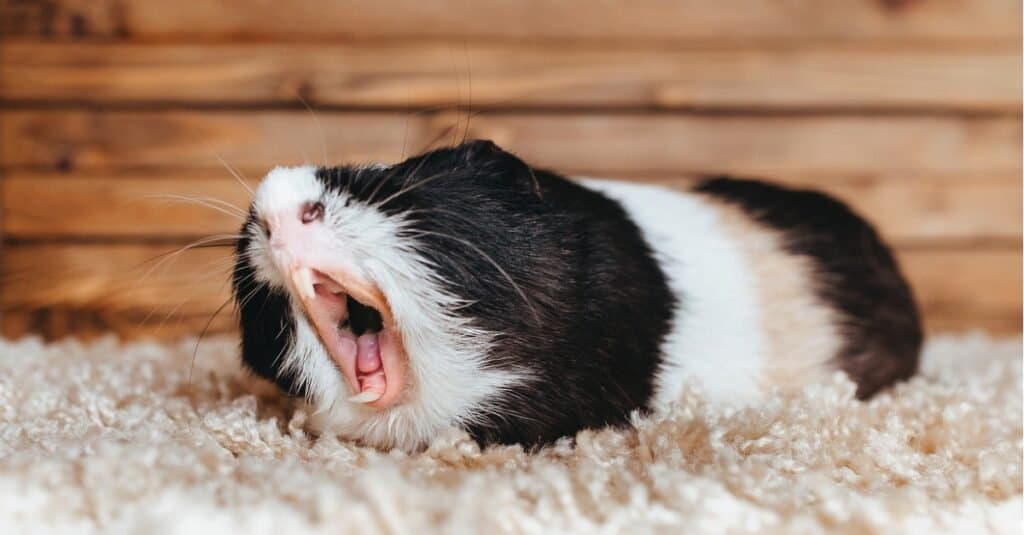Guinea pigs are known for their adorable looks and quirky personality, but few people know much about their sleep patterns. Like all animals, guinea pigs require sleep to stay healthy and functioning properly. However, their sleep patterns are quite different from those of humans. In this article, we will explore everything you need to know about guinea pigs and sleep.

How Much Do Guinea Pigs Sleep? Guinea pigs are diurnal animals, which means that they are active during the day and sleep at night. However, they do not sleep for long periods at a time like humans do. Instead, guinea pigs take frequent naps throughout the day and night, sleeping for a few minutes or hours at a time. In total, guinea pigs sleep for an average of four to six hours per day.
Sleeping Habits of Guinea Pigs Guinea pigs are social animals that enjoy sleeping together in groups. They are also prey animals, meaning that they are constantly on alert for potential dangers. Because of this, guinea pigs typically sleep with their eyes open and their bodies positioned in a way that allows them to quickly spring into action if needed.
Guinea pigs also have a unique sleeping position called the “loaf.” This position involves the guinea pig tucking its head and legs under its body, resembling a loaf of bread. This position is a sign that the guinea pig is fully relaxed and comfortable in its environment.

How to Create a Good Sleeping Environment for Guinea Pigs Creating a good sleeping environment is important for ensuring that your guinea pig gets the rest it needs. Here are some tips for creating a comfortable sleeping environment for your guinea pig:
- Provide a Cozy Sleeping Area: Guinea pigs love to snuggle up in cozy, soft bedding. Provide them with a comfortable sleeping area that is lined with soft fabrics such as fleece or cotton.
- Maintain a Consistent Temperature: Guinea pigs are sensitive to changes in temperature, so it’s important to keep their sleeping area at a consistent temperature. The ideal temperature range for guinea pigs is between 65 and 75 degrees Fahrenheit.
- Ensure Proper Lighting: Guinea pigs are diurnal animals, so they need access to natural light during the day. However, they also need a dark and quiet environment to sleep in at night. Use curtains or blinds to block out excess light and noise.
- Provide a Quiet Sleeping Area: Guinea pigs are sensitive to noise and can become easily stressed if exposed to loud or sudden noises. Provide them with a quiet sleeping area that is free from distractions.
- Keep the Sleeping Area Clean: Guinea pigs are clean animals that prefer to sleep in a clean environment. Clean their sleeping area regularly to prevent the buildup of bacteria and odors.

In conclusion, guinea pigs require sleep just like any other animal. However, their sleeping patterns and habits are quite different from those of humans. Guinea pigs take frequent naps throughout the day and night and sleep for an average of four to six hours per day. To ensure that your guinea pig gets the rest it needs, provide them with a cozy sleeping area, maintain a consistent temperature, ensure proper lighting, provide a quiet sleeping area, and keep their sleeping area clean. By providing your guinea pig with a comfortable sleeping environment, you can help them stay healthy, happy, and well-rested.